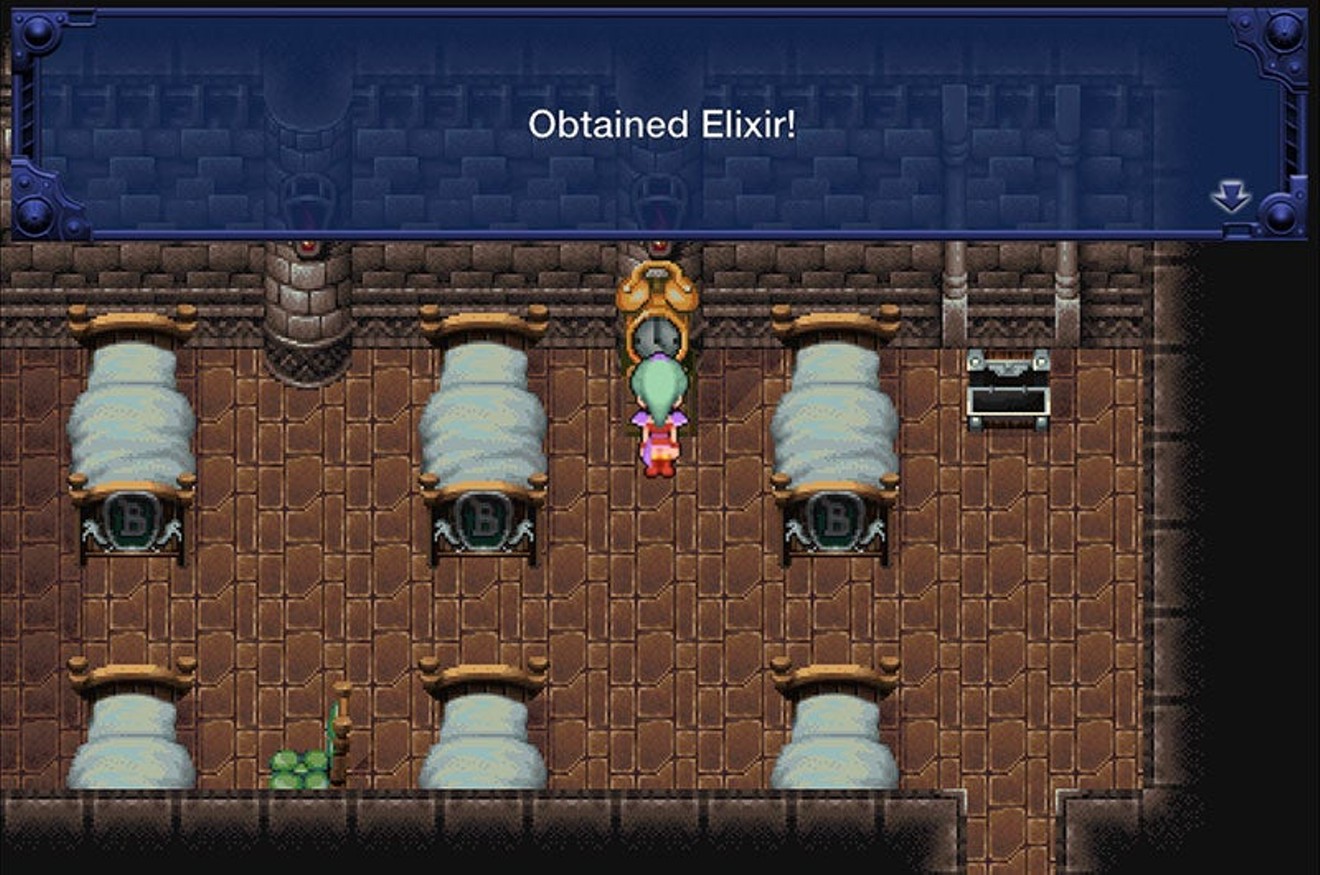Something comedian Robin Tran said has stuck hard with me: “I think there’s a lot of unexamined panic from fearing scarcity and it comes up in random ways, not using items in video games, not throwing away leftovers.” That sentence hit me like a train because I grew up poor and for some damn reason it makes me hoard imaginary medicine.
Although the two things are not mutually exclusive, there is a long established link between hoarding and poverty. Poor people simply never know when they are likely to need something, so they are unwilling to throw things away. Minimalism is an aspect of privilege. The possibility of me being completely broke and having nothing to do is one of the reasons why I’ve hauled so many books to so many different apartments over the years. What if I want to re-read Good Omens again and I can’t afford to?
It's weird how that applies to video games, though. That’s where my poverty hoarding gets truly legendary. I considered it a point of honor to finish most roleplaying games with 99 of every consumable item I could even if I never use them, or they were made redundant by other items. In fact, not using them was just as important.
My brother used to joke that the amount of elixirs you had in your inventory at the end of Final Fantasy VI was simply a way to count the number of clocks you searched (I don’t know why clocks held elixirs in the game, they just did). Even in the final battles when “I might need this later” was completely meaningless, I still wouldn’t use the all-powerful and valuable elixirs to restore my full health and magic power. The fixation of them as “for later” just never went away.
It’s a weird habit that is surprisingly hard to break. I just finally finished Bloodborne for the first time. That game is really hard, so I watched a lot of YouTube tutorials. Every one of them said the same thing: use your items. There’s no profit in letting stuff sit in your inventory. It’s vital that you use every resource you have. I heard that, agreed, understood it, and still ended the game with a chest full of beast blood pellets and bone ash marrow and other useful things. Ever time I used something I would get this anxious feeling in my chest and my brain would scream, “but what if I need it later?!”
In the past couple of years of my life I have finally become relatively financially stable. I define this as I bought furniture from a store instead of picking it up from the side of the road and was able to fix my car without crowdfunding for the money a couple of times. Consequently, I will occasionally allow myself the luxury of using up my fictional items in a game. Rather than stubbornly attempting to bulldoze my way through obstacles, I will sometimes squander resources that may not be able to be easily replaced. I still feel guilty, though.
Hoarding is often a defense mechanism against the anxiety of poverty, even when it reaches harmful levels. There’s something about staring at an inventory screen of completely full potions and ethers that makes me feel safe instead of neurotic. Growing up without a sense of financial security does that, and as the wealth gap increases it’s likely to be the only plenty I ever truly experience.
Why do we hoard items in video games? Partially because late-stage capitalism has made it increasingly impossible to do it in real life.
Support Us
Houston's independent source of
local news and culture
account
- Welcome,
Insider - Login
- My Account
- My Newsletters
- Contribute
- Contact Us
- Sign out

They'll carve "I was saving my elixirs" on my tombstone.
Screencap from Final Fantasy VI
[
{
"name": "Related Stories / Support Us Combo",
"component": "11591218",
"insertPoint": "4",
"requiredCountToDisplay": "4"
},{
"name": "Air - Billboard - Inline Content",
"component": "11591214",
"insertPoint": "2/3",
"requiredCountToDisplay": "7"
},{
"name": "R1 - Beta - Mobile Only",
"component": "12287027",
"insertPoint": "8",
"requiredCountToDisplay": "8"
},{
"name": "Air - MediumRectangle - Inline Content - Mobile Display Size 2",
"component": "11591215",
"insertPoint": "12",
"requiredCountToDisplay": "12"
},{
"name": "Air - MediumRectangle - Inline Content - Mobile Display Size 2",
"component": "11591215",
"insertPoint": "4th",
"startingPoint": "16",
"requiredCountToDisplay": "12"
}
]
KEEP THE HOUSTON PRESS FREE...
Since we started the Houston Press, it has been defined as the free, independent voice of Houston, and we'd like to keep it that way. With local media under siege, it's more important than ever for us to rally support behind funding our local journalism. You can help by participating in our "I Support" program, allowing us to keep offering readers access to our incisive coverage of local news, food and culture with no paywalls.
Jef Rouner (not cis, he/him) is a contributing writer who covers politics, pop culture, social justice, video games, and online behavior. He is often a professional annoyance to the ignorant and hurtful.
Contact:
Jef Rouner
Trending Arts & Culture
- The 10 Best And Most Controversial Hustler Magazine Covers Ever (NSFW)
- Fallout Successfully Makes the Transition From Video Game to Streaming Show
- Whose Story is It in The Father at 4th Wall Theatre Co.
-
Sponsored Content From: [%sponsoredBy%]
[%title%]

Don't Miss Out
SIGN UP for the latest
arts & culture
news, free stuff and more!
Become a member to support the independent voice of Houston
and help keep the future of the Houston Press FREE
Use of this website constitutes acceptance of our
terms of use,
our cookies policy, and our
privacy policy
The Houston Press may earn a portion of sales from products & services purchased through links on our site from our
affiliate partners.
©2024
Houston Press, LP. All rights reserved.





